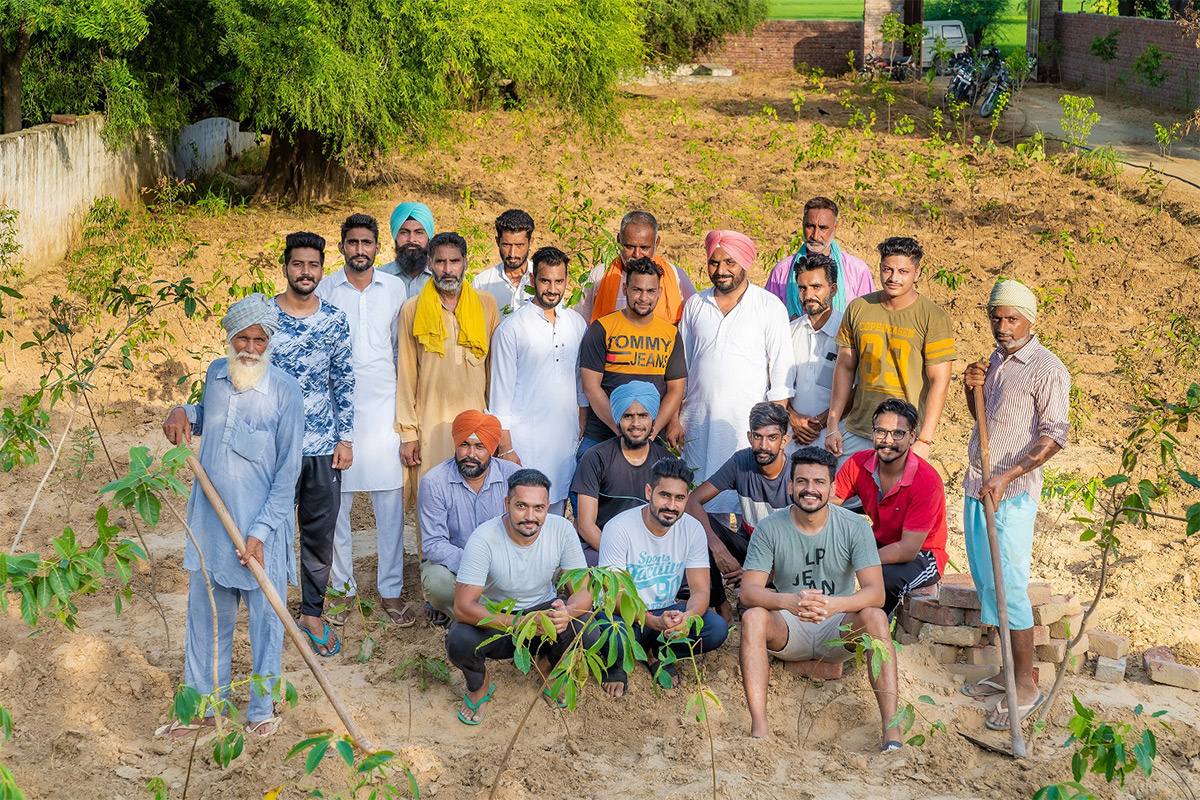Desertification is not an abstract concept for the 991 homes in Jhanduke village. It is felt in their homes, affecting their livelihoods in the most fundamental way. It is seen in the meals they eat, and the meals they cannot have. Like in most areas in Punjab, Jhanduke’s tree cover has been swallowed by farms and unbridled crop intensification. Changes in weather and reduced rainfall have resulted in a rapidly sinking water table.
“When I was a boy, there was a lot of rain and even hail, and it would get cold. I remember seeing my breath condensing when I spoke. Now there’s less rain and it hardly gets cold,” says Bhagwant Sigh, President of the village Youth Club. “In this region, where agriculture is the backbone of the economy and land is a person’s most valuable asset, desertification means devastation,” adds Gagandeep Singh, Joint Secretary of the club. “Most of India’s 1.2 billion people depend on Punjab to feed them. What they don’t know is that Punjab is running on borrowed time.”
Founded by and run with the support of Roundglass Foundation, the Youth Club is on a mission to reverse this downward spiral. The club has committed to re-establishing the natural green cover by planting indigenous trees. The foundation is providing saplings, seeds, technical training, on-site planning assistance and maintenance support. Four hundred trees have been planted in a dense patch and hundreds more all over the village. “We are committed to this work because we want the next generation to have trees, though some species have already disappeared,” Bhagwant says. Starting with a small group of 11, the club is now 60-member strong.
Understanding the vital importance of their work, they are happy to sacrifice free time – weekends or evenings – to plant and patrol, tending to the saplings, and ensuring that their tomorrow will bring a cleaner, greener environment.
“We are bringing back native trees that do not exist now – species like desi kikar and white kikar, farmaha and phulai. These trees were common in our grandparents’ days, but are not seen anymore,” says Rajnish Kumar, who leads the initiative for Roundglass Foundation. Many of Punjab’s native trees are mentioned in the Guru Granth Sahib and are known to have medicinal properties.
Community engagement is critical to the success of any long-term project. Each home in the village has been given two saplings to plant in the front yard, and the family takes ownership and responsibility for their growth. In local schools, children are taught about climate change and the importance of maintaining the forest cover. “We tell them they need to care for trees and the trees will care for them,” Rajnish says.
The community has started sharing this knowledge with neighboring villages. Twenty-two-year-old Satpal Singh, from adjoining Fatta Maluke, came to see what the excitement in Jhanduke was all about. “They are changing the face of Jhanduke and it is the youth who are driving this change. If they can do it, we can do it too,” he says.
